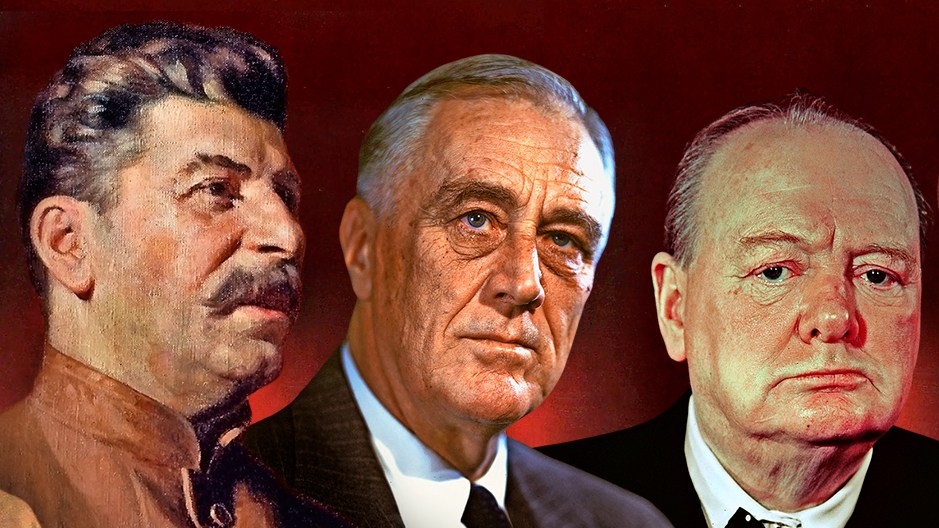With the release of the defence season of the podcast, this week’s commentary piece is going to be a review of Professor O’Brien’s latest book The Strategists: How War Made Them and How They Made War.
The book focuses on the five key leaders during World War II: Churchill, Roosevelt, Stalin, Mussolini, and Hitler. The argument driving the book is that the individual personalities of these leaders shaped their country’s strategy more than we might like to admit.
Strategy
At the start of the book, O’Brien makes the case that the classic, Clausewitzian interpretation of strategy as being the alignment of military means to a political end in a coherent method (aligning means, ways, and ends) is not one that holds up to scrutiny. Instead, strategy is much more dynamic than we like to give it credit for – after all, there is an enemy actively trying to undermine a state’s attempts. Moreover, the idea of there being a clarified end goal is also somewhat lacking. Roosevelt, for example, had a loose idea of organising key states to police the world following the war and certainly understood naval strategy as being crucial to America’s ability to secure itself but the realisation of a specific end – besides ending Nazi Germany – is wanting.
This understanding of strategy has a logical effect on the understanding of ‘Grand Strategy’. It is a term that, as Nina Silove points out, rarely maintains an agreed definition amongst the literature. Often, however, it is a grandiose concept with John Lewis Gaddis making a case for grand strategy spanning time, space, and scale with leaders contributing to a plan that unfolds over centuries. Professor O’Brien grounds his definition of grand strategy as one that requires two features: that the decision-maker has no one higher than them, and that their decisions move beyond battlefield operations. Instead of their being such thing as a ‘national strategy’ or ‘national interest’, the personality of each leader is crucial to appreciating the decisions of each country.
The Strategists
The first half of the book focuses on the formative experiences of the strategists. From Churchill’s adventures across the British Empire to Hitler’s time in the trenches, the reader is able to appreciate the distinctive characters that were to lead much of the world into war later in the 20th century.
At a few points, O’Brien touches on other themes that shape the vision and strategy of the war leaders. With the exception of Roosevelt, most of the war leaders – Churchill and Mussolini especially – saw the battlefield as ‘an important test of manhood, a theatre of bravery and commitment, a way to separate the worthy from the weak’. Naturally, race and imperialism also serve as an important backdrop to the thinking of various leaders. While it is not O’Brien’s job to explore every argument in this field, there is certainly room for inviting other authors to undertake more nuanced strategic analysis that does incorporate gender and race into the argument. Indeed, though it may not sound as catchy, a reasonable alternative to the subtitle of the book might have been: ‘how war made these men and how these men made war’.
Regardless, O’Brien’s exploration of how the personal histories of each man contributes to their strategies during the second half of the book is superb. From illuminating Stalin’s relative lack of paranoia when he was in positions of weakness to the ineffectiveness of the Battle of Britain for the Germans due to Hitler’s meddling, the book spins a wonderfully accessible narrative. Moreover, for those who already have some grounding in strategy, the book offers food for thought in the form up concepts like the ’Air-Sea Super Battlefield’ and how best to conceptualise the operational level of conflict.
How They’re Making War
For a world that is dealing with the likes of Trump, Putin, Erdoğan, and Xi, Professor O’Brien’s book offers both timely and timeless insights into the nature of strategy and the importance of appreciating the strategist. As humans, we have the ability to forecast and contend with an uncertain future. It is worth putting more consideration into who we permit to steer the ship of state.
